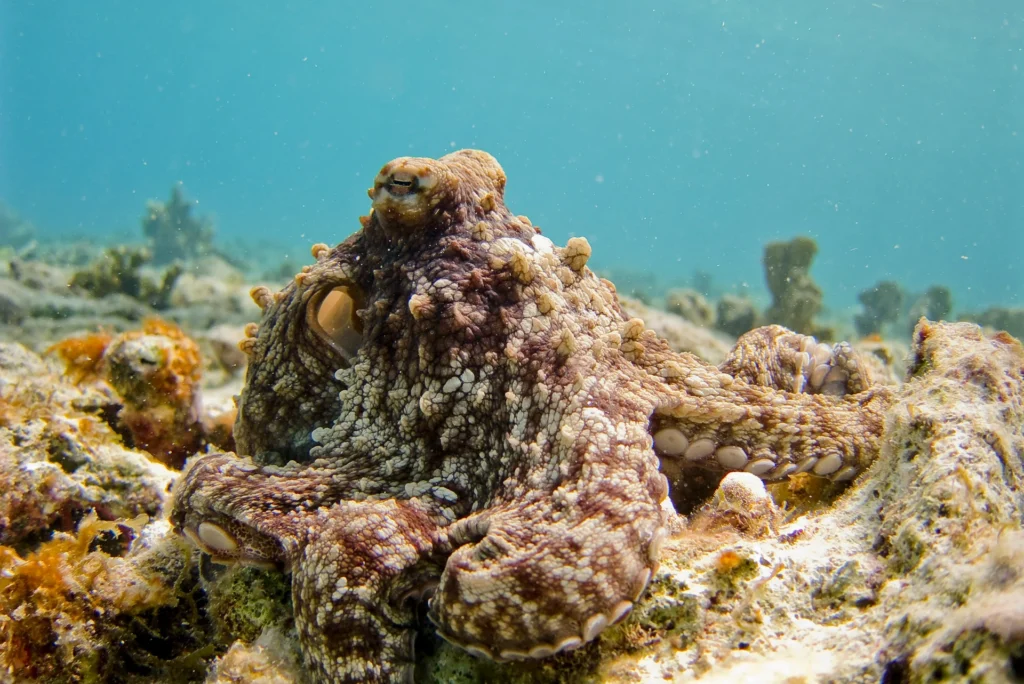Table of Contents
Curious about octopus facts? Delve into the depths of the ocean with us as we uncover the intriguing world of these enigmatic creatures. From their mesmerizing abilities in camouflage to their remarkable intelligence and unique anatomy, octopuses continue to fascinate and captivate. Join us on a journey to explore 10 fascinating facts about these marine marvels, shedding light on their mastery of survival, their astonishing behaviors, and the mysteries that surround their existence.
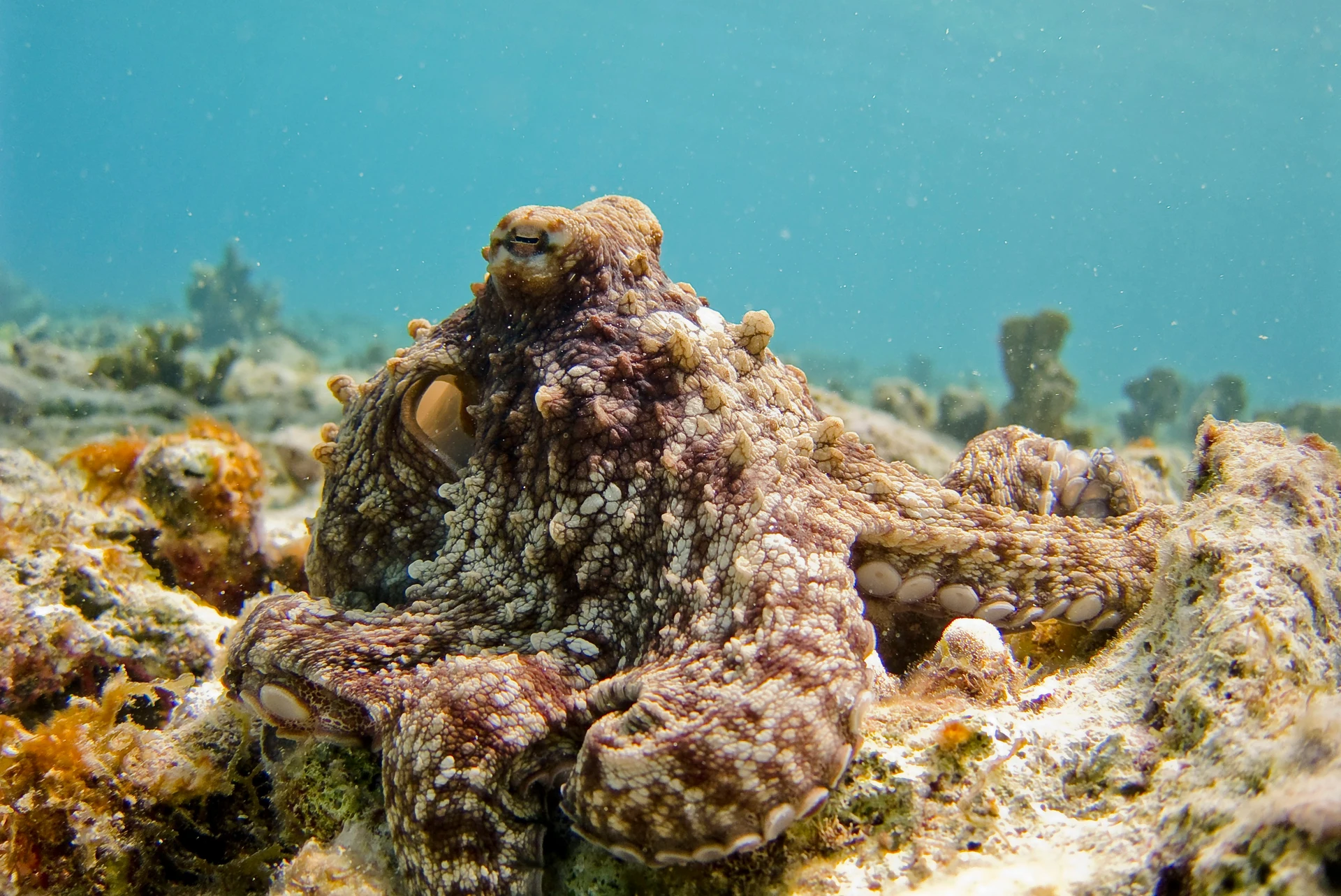
Masters of Camouflage
Octopuses possess an unparalleled ability to blend seamlessly into their surroundings, thanks to specialized cells called chromatophores. These cells allow them to change color and texture in an instant, providing remarkable camouflage against predators or when hunting prey. Imagine an octopus morphing into the pattern of coral, rocks, or even sand to evade detection—it’s a truly mesmerizing sight.
Brainy Creatures
Despite lacking bones and possessing a relatively short lifespan, octopuses boast an impressive intellect. With a decentralized nervous system and three-fifths of their neurons located in their arms, these cephalopods exhibit remarkable problem-solving skills and can even learn through observation. In fact, some studies suggest that octopuses are capable of complex behaviors, including opening jars, solving puzzles, and navigating mazes with ease.
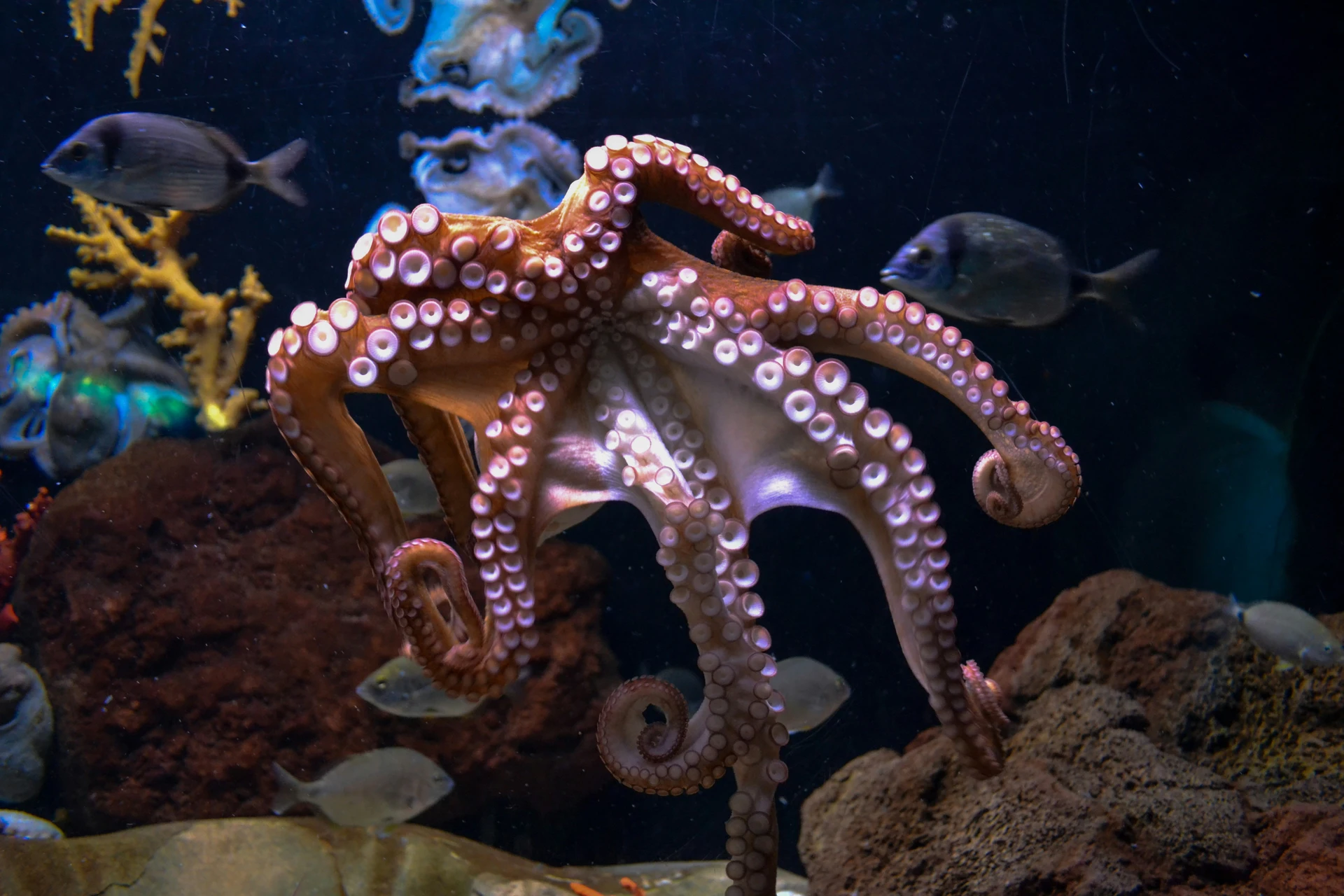
The Curious Case of Arms Autonomy
Did you know that each of an octopus’s arms has its own mini-brain, allowing for independent movement and decision-making? This decentralized nervous system enables octopuses to multitask effectively, using different arms for various activities simultaneously. From capturing prey to exploring their environment, these creatures showcase unparalleled coordination and adaptability.
Remarkable Regeneration
Octopuses possess an extraordinary ability to regenerate lost limbs—a feat that few other animals can replicate. If an octopus loses an arm due to injury or predation, it can regrow the limb with remarkable speed and accuracy. This remarkable regenerative capacity ensures that octopuses can recover from injuries and continue thriving in their marine habitats.
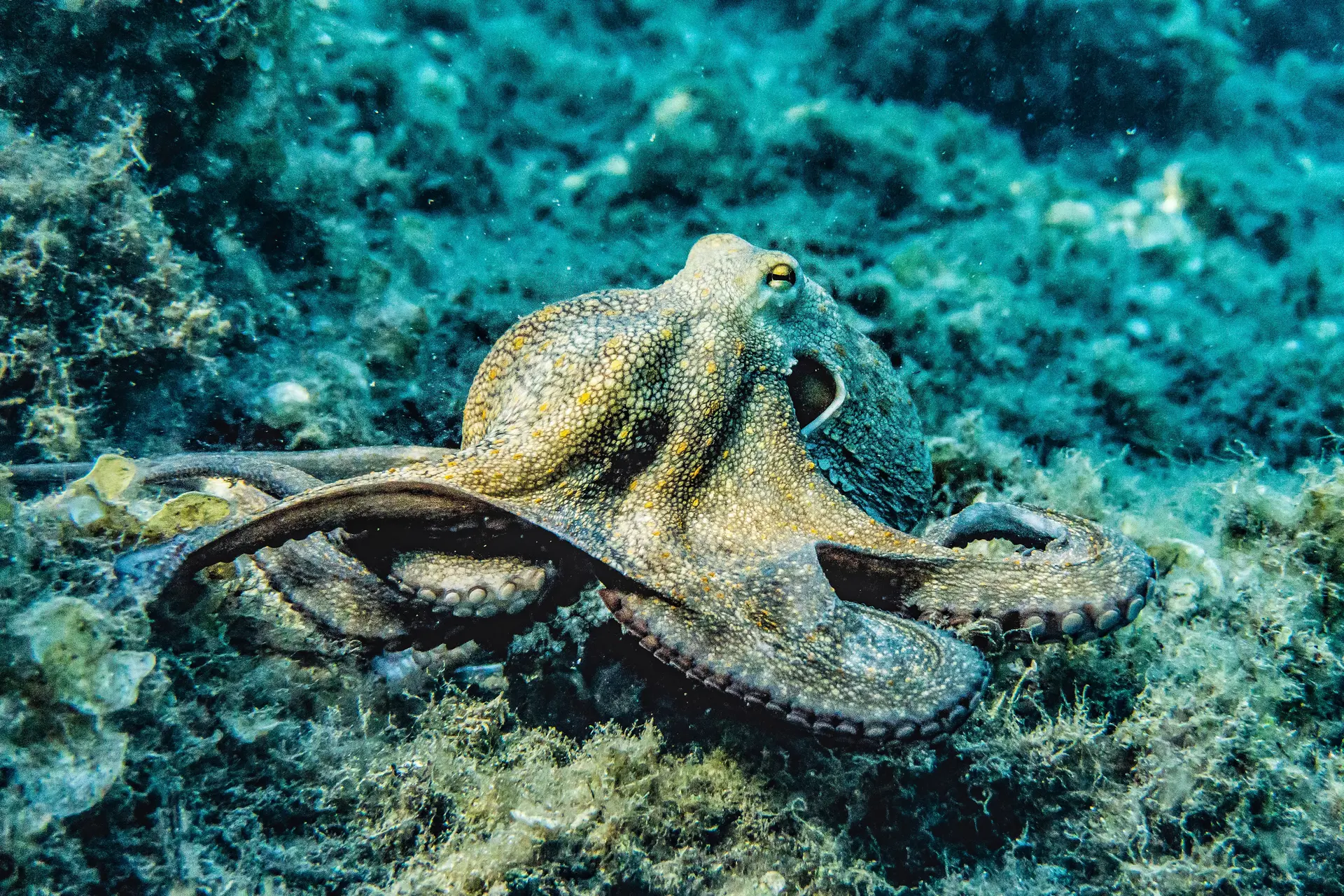
Jet-Propelled Mobility
While octopuses may lack the streamlined bodies of fish, they’ve developed an ingenious method of propulsion: jet propulsion. By expelling water through a muscular siphon, octopuses can propel themselves backward or forward with impressive speed and precision. This unique mode of locomotion allows octopuses to navigate their oceanic domain with remarkable agility and grace.
Astounding Appetites
Octopuses are voracious predators with diverse dietary preferences. From crustaceans and mollusks to small fish and even other octopuses, these cephalopods exhibit a diverse and adaptable palate. Some species of octopuses have been observed using sophisticated hunting strategies, such as mimicking the appearance of prey or ambushing unsuspecting victims from concealed positions.
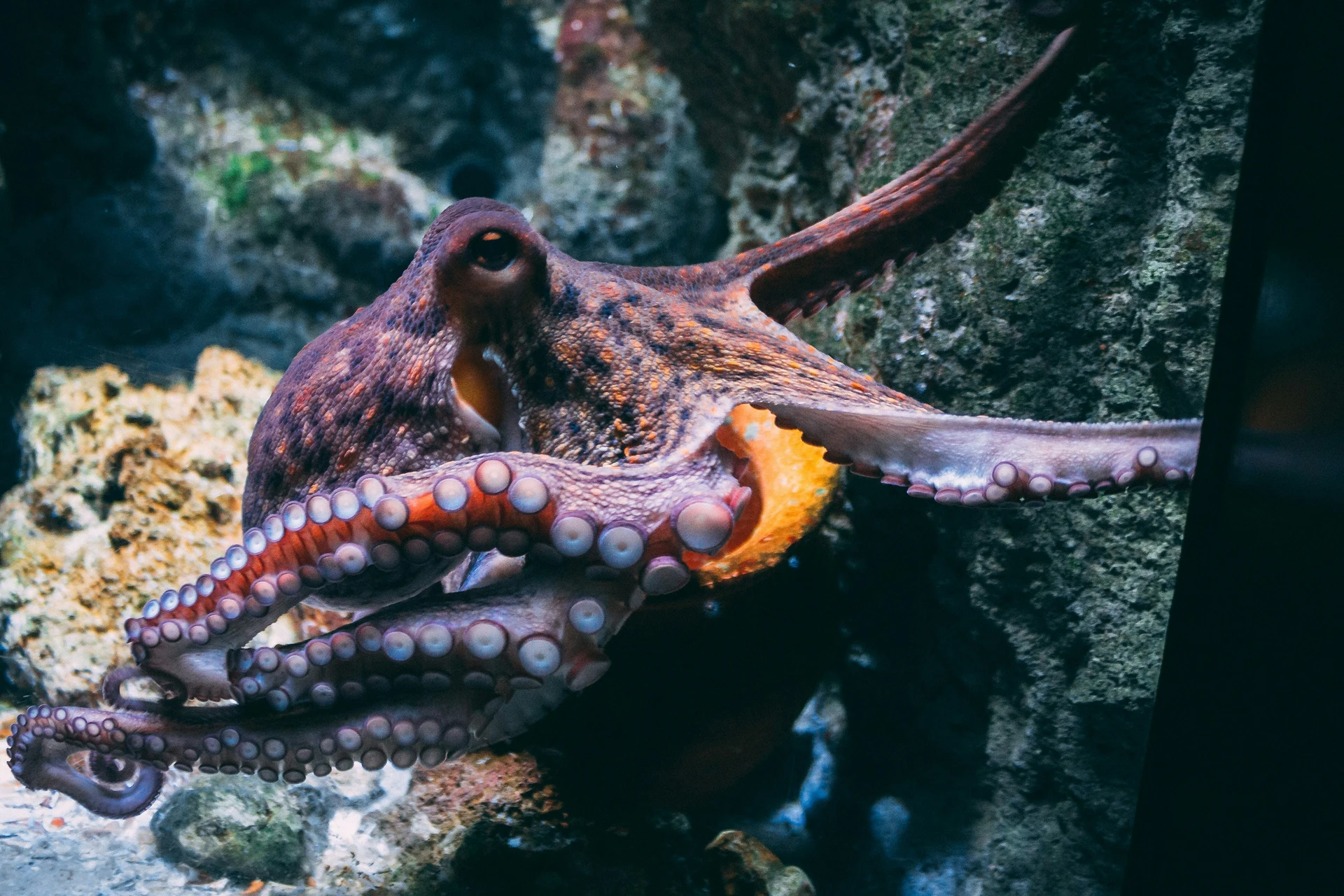
Incredible Intelligence Tests
In laboratory settings, octopuses have consistently demonstrated remarkable problem-solving abilities and cognitive flexibility. Researchers have devised various intelligence tests to assess octopus intelligence, including maze navigation, object manipulation, and observational learning tasks. These experiments have revealed the cognitive complexity and adaptive intelligence of these extraordinary creatures.
Mysterious Mating Rituals
Octopuses engage in elaborate mating rituals, often involving intricate displays of color, texture, and movement. Male octopuses may employ specialized mating arms called hectocotylus to transfer sperm packets to receptive females. After mating, female octopuses carefully tend to their eggs, guarding them against predators and ensuring their offspring’s survival until hatching.
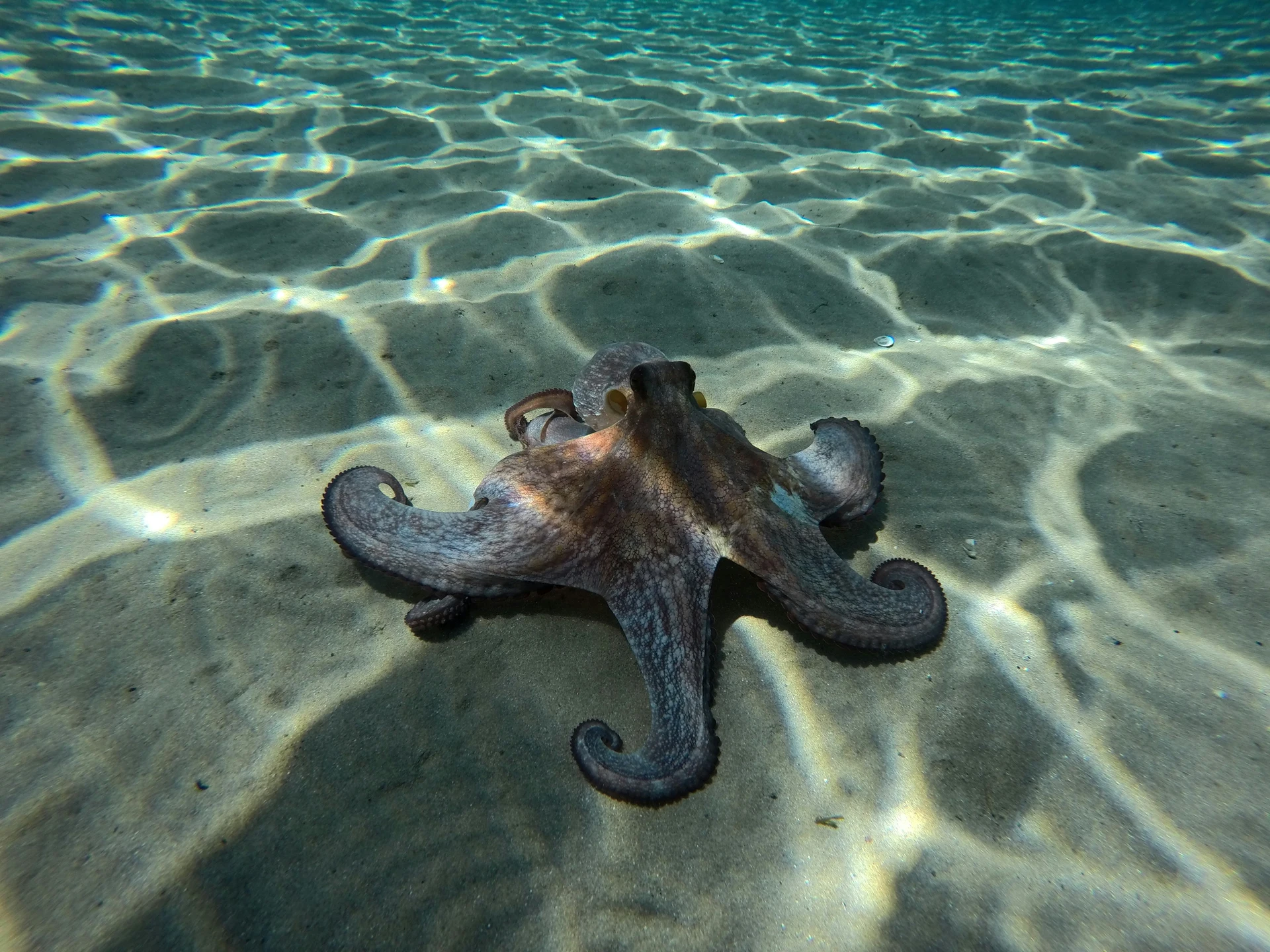
Short but Sweet Lives
Despite their remarkable abilities and intelligence, octopuses have relatively short lifespans, typically ranging from one to three years, depending on the species. This brief yet eventful existence is marked by rapid growth, intense predation pressure, and a relentless pursuit of food and mates. Despite their fleeting lifespan, octopuses leave a lasting impression on those fortunate enough to encounter them.
Enigmatic Existence
Despite decades of research, much about octopuses remains shrouded in mystery. From their elusive behavior in the wild to their enigmatic communication methods, these cephalopods continue to captivate and perplex scientists and enthusiasts alike. As we continue to unravel the secrets of the ocean depths, octopuses remind us of the boundless wonders that await discovery beneath the waves.

Learn More!
In conclusion, octopuses stand as remarkable examples of the ingenuity and adaptability found within the animal kingdom. From their unparalleled intelligence to their astonishing abilities in camouflage and regeneration, these cephalopods captivate scientists and enthusiasts alike. As we continue to uncover the mysteries of the ocean depths, octopuses serve as reminders of the boundless wonders that await discovery. Their enigmatic existence challenges us to reevaluate our understanding of consciousness, communication, and evolution. By studying octopuses, we not only gain insights into their fascinating lives but also deepen our appreciation for the rich diversity of life on Earth.
Octopuses are just one of the many fascinating creatures that inhabit our planet’s diverse ecosystems. To delve deeper into the world of marine life, explore our categories of fish and reptiles. You may also enjoy reading about the incredible intelligence of animals such as elephants and dogs or discovering the fascinating behaviors of cats.
F. A. Q. about Octopus Facts
How many hearts does an octopus have?
Octopuses have three hearts: one systemic heart that pumps oxygenated blood throughout the body and two branchial hearts that pump blood through the gills.
How many brains does an octopus have?
Octopuses have a decentralized nervous system, with the majority of their neurons located in their arms. While they do not have a centralized brain like vertebrates, each arm contains a cluster of neurons, allowing for independent movement and decision-making.
How long do octopuses live?
The lifespan of an octopus varies depending on the species, with most species living for one to three years. However, some deep-sea species may have longer lifespans, reaching up to five years or more.
What do octopuses eat?
Octopuses are carnivorous predators with a diverse diet that includes crustaceans, mollusks, small fish, and even other octopuses. They use their powerful beak to crack open shells and consume their prey.
Can octopuses live out of water?
While octopuses are primarily marine animals, some species are capable of surviving for short periods out of water, particularly in damp environments. However, prolonged exposure to air can be detrimental to their health and survival.
Are octopuses smart?
Yes, octopuses are incredibly intelligent creatures with remarkable problem-solving abilities, observational learning skills, and complex behaviors. They are capable of navigating mazes, opening jars, and adapting to new environments.
Are octopuses dangerous?
While octopuses are not typically aggressive toward humans, some species possess venomous bites or venomous saliva that they use to immobilize prey. However, octopuses are generally shy and prefer to avoid confrontation whenever possible.


